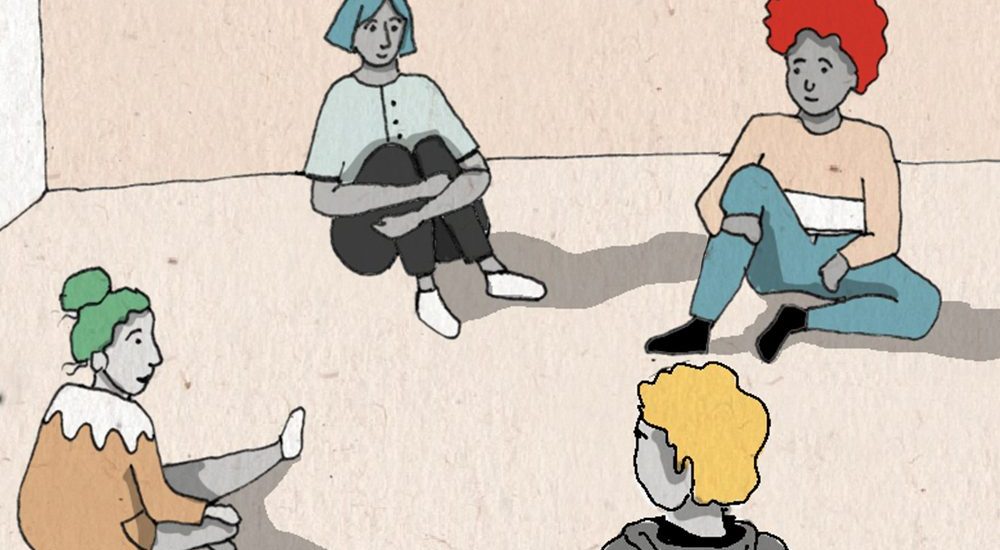Manage anxiety without medication by incorporating natural and effective strategies into your daily routine. While medication can be helpful for some, many people prefer to explore non-medical approaches to reduce anxiety and improve their mental well-being. The good news is that there are several proven methods to help you manage anxiety naturally and regain a sense of calm and control.
Here are six practical ways to manage anxiety without medication and improve your overall quality of life.
1. Practice Mindfulness and Meditation
Mindfulness and meditation are powerful tools to help you manage anxiety without medication. These practices focus on bringing your attention to the present moment, reducing racing thoughts, and calming your mind.
How to Get Started:
- Mindfulness: Spend a few minutes each day focusing on your breath, body sensations, or surroundings. Apps like Headspace or Calm can guide you through mindfulness exercises.
- Meditation: Practice guided or unguided meditation for 5–10 minutes daily to reduce stress and improve focus.
Regular mindfulness and meditation can help you build resilience to anxiety and create a sense of inner peace.
2. Stay Physically Active
Exercise is one of the most effective ways to manage anxiety without medication. Physical activity releases endorphins, which are natural mood boosters, and helps reduce the levels of stress hormones in your body.
Tips for Staying Active:
- Aim for at least 30 minutes of moderate exercise most days of the week.
- Try activities like walking, jogging, yoga, or dancing—anything that gets your body moving.
- Choose exercises you enjoy to make it easier to stick to a routine.
Regular exercise not only reduces anxiety but also improves your overall physical and mental health.
3. Limit Caffeine and Alcohol
What you consume can have a significant impact on your anxiety levels. Caffeine and alcohol, in particular, can worsen anxiety symptoms for many people.
- Caffeine: While it can provide a temporary energy boost, caffeine can increase heart rate, trigger jitteriness, and worsen feelings of anxiety. Try switching to decaf coffee, herbal tea, or water.
- Alcohol: Although it may seem relaxing at first, alcohol can disrupt your sleep and increase anxiety over time. Limit your intake or avoid it altogether.
By making mindful choices about what you consume, you can help your body stay balanced and reduce anxiety naturally.
4. Practice Deep Breathing Exercises
Deep breathing exercises are a simple yet effective way to calm your mind and body during moments of anxiety. When you’re anxious, your breathing often becomes shallow, which can worsen your symptoms.
How to Practice Deep Breathing:
- Sit or lie down in a comfortable position.
- Inhale deeply through your nose for a count of four.
- Hold your breath for a count of four.
- Exhale slowly through your mouth for a count of six.
- Repeat for a few minutes until you feel more relaxed.
Deep breathing helps activate your body’s relaxation response, making it a great tool to use anytime you feel anxious.
5. Build a Support System
Having a strong support system can make a big difference when you’re trying to manage anxiety without medication. Talking to trusted friends, family members, or a therapist can help you process your feelings and gain perspective.
Ways to Build Support:
- Reach out to loved ones and let them know how you’re feeling.
- Join a support group for people dealing with anxiety.
- Consider working with a therapist who can provide guidance and coping strategies.
Social connection is a key factor in reducing anxiety and improving your overall mental health.
6. Create a Healthy Routine
Establishing a healthy daily routine can help you feel more grounded and reduce anxiety over time. Small lifestyle changes can have a big impact on your mental well-being.
Tips for a Healthy Routine:
- Sleep: Aim for 7–9 hours of quality sleep each night. Create a calming bedtime routine and avoid screens before bed.
- Nutrition: Eat a balanced diet rich in whole foods, including fruits, vegetables, lean proteins, and healthy fats.
- Time Management: Plan your day to avoid feeling overwhelmed. Break tasks into smaller steps and prioritize what’s most important.
A consistent routine can help you feel more in control and better equipped to handle life’s challenges.
Why Managing Anxiety Without Medication Matters
Learning to manage anxiety without medication can empower you to take control of your mental health naturally. While medication can be a helpful option for some, non-medical approaches offer long-term benefits without potential side effects.
By practicing mindfulness, staying active, limiting caffeine and alcohol, using deep breathing exercises, building a support system, and creating a healthy routine, you can reduce anxiety and improve your overall well-being.
If you’re looking for additional support in managing anxiety, my private practice in Melrose, MA is here to help. I offer personalized care and resources to help you develop effective coping strategies and achieve a greater sense of calm. Visit my services page to learn more about how I can support you on your journey to better mental health.
External Resources for Managing Anxiety:
- Anxiety and Depression Association of America (ADAA) – Tips and resources for managing anxiety naturally.
- National Institute of Mental Health (NIMH) – Information on anxiety and treatment options.
Anxiety doesn’t have to control your life. Start practicing these strategies today and take the first step toward a calmer, more balanced mind.

